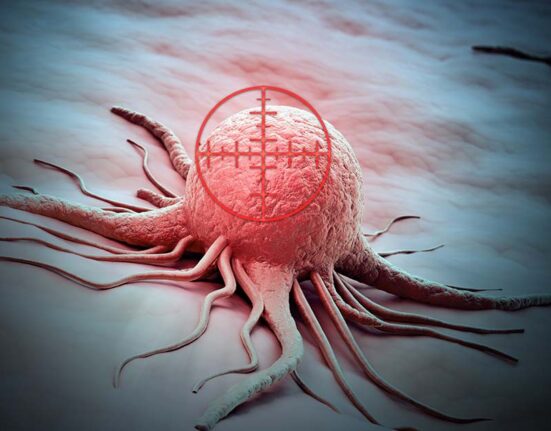Targeted therapy is a form of cancer treatment that uses cancer drugs or other substances that target specific molecules or pathways involved in the growth and spread of cancer cells. Advanced or metastasized uterine cancer becomes more difficult to treat, and the cancer may be more resistant to traditional therapies like chemotherapy or radiation. Targeted therapies for uterine cancer have shown promise in recent years as a way to improve treatment outcomes in such instances, with the benefits of potentially reduced side effects.
The American Cancer Society explains that targeted therapy is a relatively new form of treatment for uterine cancer. Few drugs are being used currently, and some of which are used only during clinical trials. These drugs are typically used to treat high-risk, metastasized, or recurred uterine cancers.
Types Of Targeted Therapy For Uterine Cancer Treatment
Hormone Therapy. One type of targeted therapy for uterine cancer treatment is hormone therapy. This treatment targets the hormone receptors on the cancer cells, which can then slow or stop the growth of the cancer. Uterine cancer growth is often fueled by estrogen and progesterone. Blocking the effect of these hormones on cancer cells can thus be an effective treatment strategy. Hormone therapy may be used as a standalone treatment for uterine cancer, or in combination with other treatments like surgery or radiation therapy.
Inhibitors. Another type of targeted therapy for uterine cancer is the use of drugs that block the activity of specific proteins that are involved in the growth and spread of cancer cells. For example, some drugs target the protein HER2, which is overexpressed in some uterine cancers. Other drugs target the protein mTOR, which plays a role in the growth and division of cancer cells. These drugs can be used to slow or even stop the growth of cancer cells. They may be used in combination with other forms of treatments such as chemotherapy.
Immunotherapy. This is another type of targeted therapy that may be used in uterine cancer treatment. Immunotherapy uses the body’s own immune system to recognize and attack cancer cells. The drugs work by blocking the proteins that are preventing the immune system from attacking cancer cells. It may also work by enhancing the immune system’s ability to recognise and destroy cancer cells. Immunotherapy may be used by itself or in combination with other treatments such as chemotherapy.
Targeted Therapy Is Not Perfect
While targeted therapy for uterine cancer treatment has the potential to improve outcomes and reduce side effects for patients, they are not without risks and side effects. In this regard, it is similar to any other form of cancer treatment. For instance, some known side effects for inhibitor drugs include high blood pressure, tiredness, bleeding, and low white blood cell counts. More serious, but rare, side effects include severe bleeding or slow wound healing, colon perforations, and formation of fistulas between the bowel and the bladder. The risks and side effects will vary depending on the form of treatment / drug received.
Patients with uterine cancer should consult their doctors to determine the best treatment options for their specific case.
Further Reading On Uterine Cancer
Protect against cancer, cardiovascular disease, and other chronic diseases with regular health screening. Compare and shop for health screenings from Singapore and regional healthcare providers at a single convenient platform - shop.health365.sg
This article is informative only and is not intended to be a substitute for professional medical advice, diagnosis, or treatment, and should never be relied upon for specific medical advice.





















































